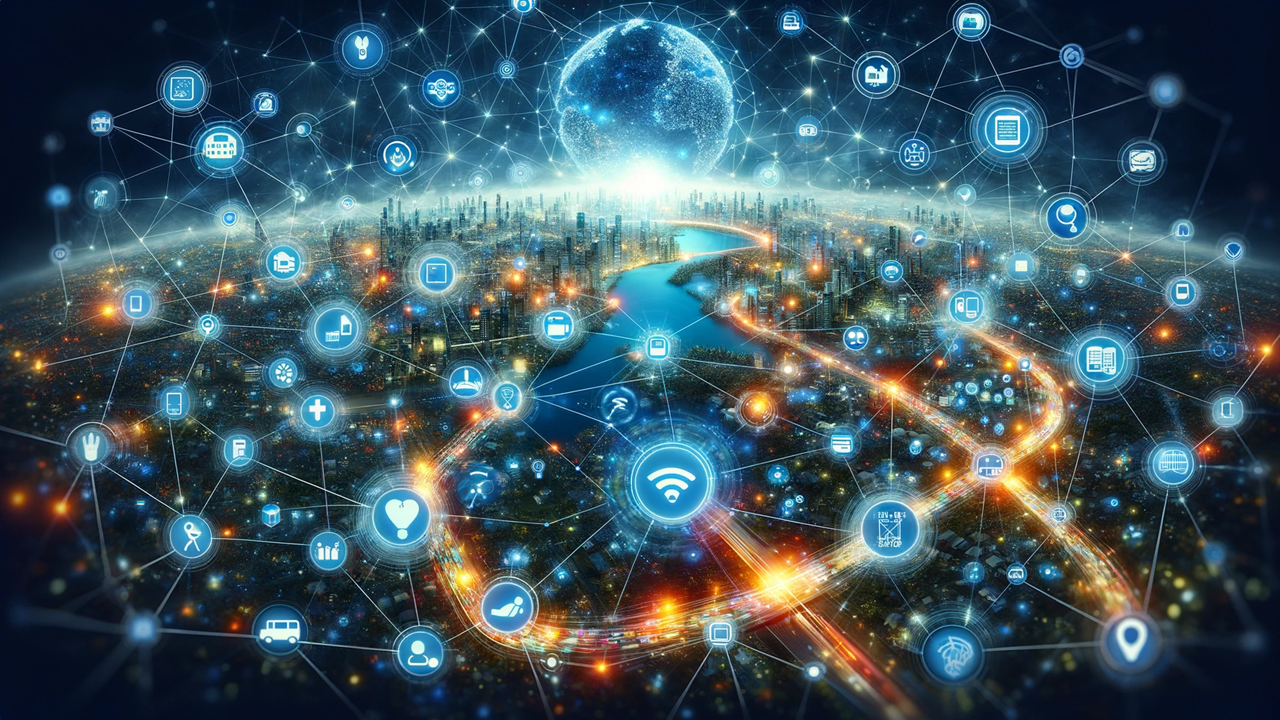The IoT Revolution: How 65 Billion Smart Devices are Transforming Healthcare to Logistics
The IoT revolution, with 65 billion smart devices, is dramatically transforming industries, notably healthcare and logistics. It enhances patient care, optimizes logistics operations, and introduces challenges and innovations that shape our approach to technology and data.

Explore how the IoT revolution, with 65 billion smart devices, is making monumental strides in transforming sectors from healthcare to logistics, fostering a world of unparalleled connectivity and innovation.
In an era where digital transformation dictates the pace of advancements, the Internet of Things (IoT) stands out as a revolutionary force. With an estimated 65 billion smart devices connecting the dots between data and decision-making, IoT's impact spans from healthcare enhancements to logistics optimizations, embodying a future where technology serves as the backbone of efficiency and innovation.
Introduction to the IoT Revolution
The Internet of Things (IoT) represents a paradigm shift in the way we interact with technology. By enabling devices to communicate and collaborate without human intervention, IoT is not just a technological evolution; it's a global revolution. As we approach the staggering figure of 65 billion connected devices by 2025, the implications for industries such as healthcare and logistics are profound and multifaceted.
The Impact of IoT on Healthcare
Healthcare has experienced a seismic shift thanks to IoT. Remote monitoring devices empower healthcare providers to deliver care beyond traditional settings, while wearable technologies offer real-time insights into patient health, enabling proactive management of conditions. Moreover, IoT's role in data analytics paves the way for predictive healthcare models, tailoring treatments to individual needs and heralding a new era of personalized medicine.
Transforming Logistics Through IoT
In logistics, IoT's influence is equally transformative. Real-time tracking systems and fleet management solutions optimize routes and reduce operational costs. Simultaneously, IoT-enabled inventory management systems ensure accuracy and efficiency, highlighting the critical role of IoT in refining supply chain dynamics and enhancing transparency across logistics operations.
Security and Privacy Challenges in IoT
Despite its benefits, the IoT revolution brings to the fore significant security and privacy challenges. As devices proliferate, so do the risks associated with data breaches and unauthorized access. Addressing these concerns is paramount to sustaining IoT's growth and ensuring user trust in an increasingly connected world.
The Future of IoT: Predictions and Innovations
Looking ahead, the future of IoT is poised for even greater advancements. The integration of AI and machine learning with IoT devices promises smarter, self-learning systems that could redefine convenience and efficiency. Meanwhile, the ongoing development of next-generation IoT technologies continues to expand the boundaries of what's possible, from healthcare diagnostics to smart city infrastructures.
Conclusion
The IoT revolution is reshaping the landscape of industries, driving innovation, and redefining the parameters of what technology can achieve. From enhancing patient care in healthcare to streamlining operations in logistics, the impact of 65 billion smart devices is both vast and nuanced, ushering in an era of unparalleled connectivity and potential. As we navigate this ongoing transformation, the journey of IoT from a niche concept to a cornerstone of modern society is a testament to the power of innovation and the endless possibilities that lie ahead.
ALSO READ
Rising Assaults on Healthcare Workers in Delhi Hospitals Highlight Safety Concerns
European Shares Surge Amid Utility and Healthcare Gains
Park Medi World: North India's Expanding Healthcare Titan
Revolutionizing Healthcare: POCT Group's AI Integration in Uttar Pradesh
Shadowfax Targets IPO to Propel Growth in Indian Logistics Market










